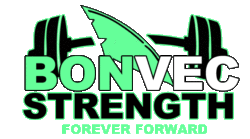It’s winter in New England, which means the sun sets extra early. It also means most of my work day at Cressey Sports Performance takes place after sunset. So the other day at about 6 p.m., I caught one of our high school athletes checking out his fresh haircut in the reflection in one of the windows.
“Hey!” I yelled, “Cut that out!” I intervened partly out of jealousy because I haven’t had a full head of hair in eight years, but also because we strategically have no mirrors in our gym.
Why not, you ask? It’s a common question I receive, both at CSP and at 212 Health & Performance.
It’s not because we disdain all vanity (most of us got into lifting to look better, and if you you say you didn’t, you’re probably lying). And it’s not because we’re too cheap to buy mirrors (look around at either gym and you’ll see we don’t skimp on equipment).
There are a few simple-but-important reasons we have no mirrors in either of the gyms where I train, and they’re all aimed to enhance the training environment so YOU, the client, can have a better lifting experience:
 1. YOU’RE NOT THAT SPECIAL
1. YOU’RE NOT THAT SPECIAL
At the risk of sounding old and cranky, we live in a society where everyone under the age of 25 (and a lot of people over 25 too) think they’re so incredibly important that they need to document every waking moment of their life on Instagram or Snapchat.
So in between bed selfies, food selfies, bathroom selfies and back-to-bed selfies, there are gym selfies. These are perhaps the worst selfies in existence because it means you lack the focus and discipline to go an hour without unapologetically worshipping yourself on social media when you should be training hard and making yourself better.
A lack of mirrors makes it a lot harder to post a picture of yourself going #BEASTMODE on the hip abduction machine.
(Note: the occasional video to check out your form when there are no coaches around is forgivable and even encouraged. But try to keep your shirt on.)
2. THE “EYES” HAVE IT
One of the most fundamental aspects of strength training I’ve learned over the past year is that the position of your eyes is vitally important for almost every strength exercise we do.
Postural alignment can make or break your technique in a squat, deadlift, push-up, lunge, etc. Where our eyes go, our head tends to follow. And where our head goes, our neck goes. Where our neck goes, the rest of the spine tends to follow.
For example, looking up in a squat may help you keep from falling forward, but if you crank your next into extension and throw your head to the heavens, you’ll have a tough time keeping your chest from falling as you lower down. I explain further in this Technique Tuesday:
Spinal position affects not just safety, but your ability to produce force. So if you want to be safe and strong, put your eyes where they’re supposed to be.
That said, performing exercises in front of a mirror causes you to shift your gaze throughout the exercise, compromising your ability to keep good form. Whether it’s staring yourself down head-on during a squat or turning your head to check yourself out during a biceps curl, your technique won’t be as tight as it would be if you fixed your eyes on one spot and kept them there.
Finally, mirrors create a sense of dependence to always check your technique. As coaches, we’re striving to build unconscious competency with our clients, which means we want them to do things the right way without even thinking about it. If you’re tempted to check the mirror, you’re thinking too much and you’ll never reach the level of self-awareness that’s essential for success on the field of competition.
 3. THAT’S WHAT COACHES ARE FOR
3. THAT’S WHAT COACHES ARE FOR
The reasons I’m employed is because I can help people move better. I’m able to see and instruct things that they’d be unable to fix themselves.
The legions of professional baseball players that train at CSP is a testament to our staff-wide ability to improve athletic performance. I guarantee these athletes wouldn’t get the same results if they took the same workout routines and did them in a gym with mirrors and no coaches.
It’s also easy to overestimate our own abilities to do things at a high level. We’ll never be as critical of ourselves as we will of others, so in the interest of self-improvement, it’s well worth it to get a coach to give it to you straight when it comes to exercise technique.
A mirror doesn’t have an opinion. A mirror can’t coach you in the moment to fix subtle form issues. And a mirror can’t help you train harder when you don’t feel like it.
NO MIRRORS, NO PROBLEMS
Once you train in an environment like CSP or 212, you’ll realize that all the perceived value of mirrors in the gym is overrated. If you’re surrounded by four walls of glass in your gym, I suggest you cancel your membership and find a gym with no mirrors. You’ll become a better lifter because of it.
